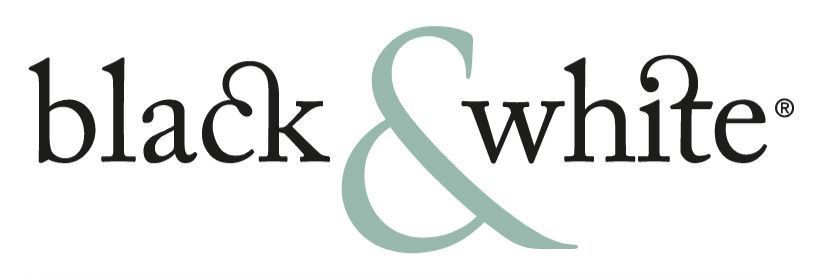Your Path to Hawke's Bay Homeownership: The Plain-English Guide to Mortgages
Your Guide to Getting a First Home Loan in Hawke's Bay
Key Takeaways
- The 2025 housing market in Hawke's Bay presents a favourable window for first-time buyers, thanks to more stable house prices.
- Understanding different home loan types—like fixed rate, floating rate, and revolving credit—is crucial to finding the right fit for your financial goals.
- Using your KiwiSaver fund is a powerful tool for your deposit, and we can help you understand your eligibility.
- A mortgage broker works for you, not the banks, to simplify the process, navigate lending criteria, and find you competitive interest rates—often at no cost to you.
For many in Hawke's Bay, the dream of owning a first home can feel like a distant goal. But as we move through 2025, the landscape is starting to look more encouraging. The New Zealand property market is showing signs of recovery, creating a more balanced environment for those ready to take their first step onto the property ladder.
We're seeing this shift firsthand. Recent data shows that first-home buyers are becoming more active and confident. According to a July 2025 survey from Tony Alexander, a net 17% of mortgage advisors reported an increase in first-home buyers seeking advice. This trend is being supported by several factors, including more accessible house prices and the ability for Kiwis to tap into their KiwiSaver funds for a deposit.
While the opportunity is there, we know that navigating the world of mortgages, interest rates, and bank applications can be overwhelming. That’s why we’ve put together this straightforward guide. We want to demystify the process of securing a first home loan, breaking down the jargon and giving you the clarity you need to make empowered decisions for your financial future.
What's the Difference Between a Mortgage and a Home Loan?
In New Zealand, the terms 'mortgage' and 'home loan' are often used interchangeably, but there is a technical difference. A home loan is the money you borrow from a lender (like a bank) to buy a property, while a mortgage is the legal agreement that gives the lender the right to take your property if you fail to make your loan repayments.

Understanding Your Home Loan Options
Choosing the right home loan structure is one of the most important decisions you'll make. It affects your repayment amounts, your flexibility, and how much interest you pay over the life of the loan. There isn't a single 'best' option—it all depends on your personal circumstances, risk tolerance, and financial goals. Let's break down the main types.
Fixed Rate Home Loans
A fixed rate home loan means your interest rate is locked in for a set period, typically between six months and five years. Your mortgage repayments will stay the same for the entire fixed term, giving you certainty and making it easier to budget.
- Pros: Predictable repayments, protection from rising interest rates.
- Cons: If market rates drop, you're stuck on the higher rate. You may also face significant fees if you want to make large extra repayments or pay off the loan early (break fees).
Floating (or Variable) Rate Home Loans
With a floating rate home loan, your interest rate can move up or down with the market. This means your repayment amount can change. This option offers much more flexibility than a fixed rate loan.
- Pros: You can make extra repayments or pay off your home loan in full without penalties. If interest rates fall, your repayments will decrease.
- Cons: Your repayments will increase if interest rates go up, which can put pressure on your budget.
Revolving Credit Facility
Think of a revolving credit home loan like a large overdraft. Your loan is combined with your everyday transaction account, and your pay goes directly into this account to reduce the loan balance. You can then draw funds out as needed, up to your credit limit. The interest is calculated daily on the outstanding balance.
- Pros: Maximum flexibility. Can help you pay less interest if you are disciplined with your spending and keep a positive balance.
- Cons: Requires careful financial management. The temptation to spend can be high, and without discipline, it can be difficult to consistently pay down the loan principal.
Combining Loan Types
You don't have to choose just one. Many first home buyers opt for a split loan, putting a portion of their mortgage on a fixed rate for security and keeping a smaller amount on a floating or revolving credit facility for flexibility. This can offer a good balance of certainty and freedom.
The Mortgage Application Process: A Step-by-Step Guide
So, you've decided you're ready to start the home buying journey. What actually happens next? The mortgage application process can seem complex, but it can be broken down into a few key stages.
- Get Pre-Approved: Before you even start looking at properties, it's essential to get a loan pre-approval. This is a conditional offer from a lender that tells you how much you could borrow. It shows real estate agents you're a serious buyer and gives you a clear budget to work with.
- Gather Your Documents: Lenders need to verify your financial situation. You'll typically need to provide photo ID, proof of income (payslips or financial statements if you're self-employed), bank statements for the last 3-6 months, and evidence of your deposit.
- Find Your Dream Home: This is the exciting part! With your pre-approval in hand, you can confidently make an offer on a property within your budget.
- Gain Formal Approval and Settle: Once your offer on a house is accepted, we submit the final details to the lender. They'll complete their checks (like a property valuation) and issue an unconditional loan offer. From there, it's over to the lawyers to handle the legal transfer of ownership on settlement day.
Why Use a Mortgage Broker?
When you're applying for a home loan, you could go directly to your bank. But how do you know if your bank is offering you the best deal or the right loan structure for your needs? This is where a mortgage broker (also known as a mortgage adviser) comes in. We work for you, not for any single bank.
Our job is to understand your unique situation and property goals. We then use our knowledge and relationships to find the right home loan for you from a range of different lenders. We navigate the bank's complex lending criteria, package your application to give it the best chance of success, and negotiate on your behalf.
It saves you an enormous amount of time, stress, and potentially thousands of dollars over the life of your loan. Best of all, when you work with us, our service is TOTALLY FREE! We are paid a commission by the lender once your loan is settled, so you get expert financial advice without the cost. Learn more about our mortgage services here.
Tapping into Your KiwiSaver for Your First Home
For most first home buyers in NZ, their KiwiSaver account is the cornerstone of their deposit. The KiwiSaver First Home Withdrawal scheme allows you to withdraw most of your savings (everything except the initial $1,000 government kick-start) to put towards buying your first home.
To be eligible, you generally need to have been a KiwiSaver member for at least three years. Navigating the rules and paperwork can be tricky, but it's an incredibly powerful tool for getting into your first home. As part of our service, we can also assist with finding out about your eligibility for Kiwisaver and guide you through the withdrawal process to ensure everything runs smoothly.
Beyond Your First Home Loan: Thinking Long-Term
Securing your first mortgage is a huge milestone, but it's not the end of the journey. Your life and financial situation will change over time, and your home loan should adapt with you. When your fixed rate term ends, for example, it's a perfect opportunity to review your strategy.
It's wise to periodically ask yourself: Am I happy with my current bank or lender? Am I getting the best possible interest rate? Does my home loan have all the features I require? Is my loan structure still correct for my current situation? These questions ensure your mortgage continues to work for you, not against you. We can help you explore your options when it comes to refinancing or re-fixing your home loan down the track, ensuring you're always in the best possible position.

Ready to Take the First Step Towards Home Ownership?
Buying your first home is one of life's biggest achievements, and with the right advice, it doesn't have to be stressful. Our goal is to make the path to home ownership as clear and simple as possible, providing you with the support you need at every step.
If you're a first home buyer in Hawke's Bay feeling excited about the opportunities in the current market, we're here to help you get started. Contact us today to have a chat about your first home loan and turn your dream into a reality.
_Disclaimer: The information provided in this article is for general informational purposes only and does not constitute financial advice. Interest rates are subject to change and lending criteria, terms, and conditions apply. We recommend seeking personalised financial advice from a qualified professional to assess your individual circumstances before making any financial decisions._







